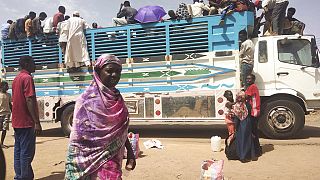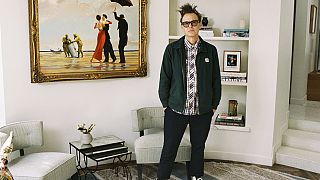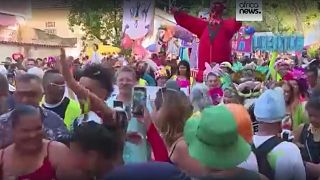The Morning Call
Return of looted art to Africa
A few days ago French President Emmanuel Macron toured several African countries.What caught our attention is what he said during his speech in Ouagadougou, Burkina Faso.
“African heritage must be highlighted in Paris, but also in Dakar, in Lagos, in Cotonou. In the next five years, I want the conditions to be met for the temporary or permanent restitution of African heritage to Africa.”
This statement is important for culture in Africa. Because many countries have seen their royal treasures and art pieces looted and stolen during wars, archaeological searches, but mainly during the colonial era.
And today these items are often found on the art market or in museums around the world such as the British Museum in London or the Quai Branly museum in Paris.
Some countries have asked for the return of these items. This is the case for Nigeria, who asked England to return some items stolen by British settlers. The request was not granted.
Benin also in 2016 asked France to return nearly 6,000 objects that were looted by the French colonial army, but also by Christian missionaries who assumed that these objects were fetishes. The request was also not granted.
Many African countries don’t see the value of these ancient objects. But it is important that they return to the continent, as explained by Marie-Cécile Zinsou, president of the Zinsou Foundation in Benin, dedicated to culture and African art.
“This heritage is our history. Africa has been dispossessed of its heritage. France colonized us, and they stole objects that made the pride and the greatness of our history. They have to give them back to us so we can retake control of our history. So these are not just old objects. They are a testimony of our civilization, a testimony of our past, this glorious past that was erased by colonization.”
Often these Western museums argue that what hinders them to return these objects to their countries of origin is that they may be kept in bad conditions and might be stolen. But for Marie-Cécile Zinsou “People who think we are not big enough to maintain our heritage, well technically it’s not their business! We will not deny the fact that most African states do not make efforts to preserve their heritage. But we are sovereign states, we are independent. We preserve our heritage if we wish and as we wish.”
Each country wants to strengthen its cultural identity and art plays an important role to this end. We will keep an eye on this situation, and we hope that the words of Emmanuel Macron will turn things around.
“They still live”, celebrating African heritage
We move to photography with a series of photos that puts traditional African masks in the spotlight. Let me first explain the idea behind this project.
It came about following a meeting between two African-Americans. One is an African art collector, and the other is a photographer who is interested in DNA tests that allow black Americans to trace their African origins.
The models on the photos are Black Americans who took those famous DNA tests so they know which country of Africa their ancestors come from. So on these pictures each of them wears a mask that comes from the African country where their ancestors come from. The series is called “They still live”, in tribute to their ancestors and their African heritage. This is a project of photographer Thomas Evans. It’s an artistic way of saying that one should never forget their roots.





![Africanews celebrates fifth anniversary [Night Shift]](https://static.euronews.com/articles/stories/05/57/72/74/320x180_cmsv2_6b1e7837-a917-526b-b3b4-4582a3f8bcac-5577274.jpg)
![Africanews celebrates fifth anniversary [Morning Call]](https://static.euronews.com/articles/stories/05/57/72/70/320x180_cmsv2_a6c857d4-80a3-510a-88e6-f060ea8d9ee9-5577270.jpg)






02:20
In Brazil, knights and masked riders take to a football pitch for religious festival
02:19
Zimbabwean, European artists collaborate on climate, sustainability
Go to video
New museum in Rotterdam looks at migration through the lens of art
02:20
Art transcends borders and differences at show in Tangier
01:05
Moscow students dance to honour WWII veterans
Go to video
Maasai youths embrace tradition and leadership at rare warrior training camp